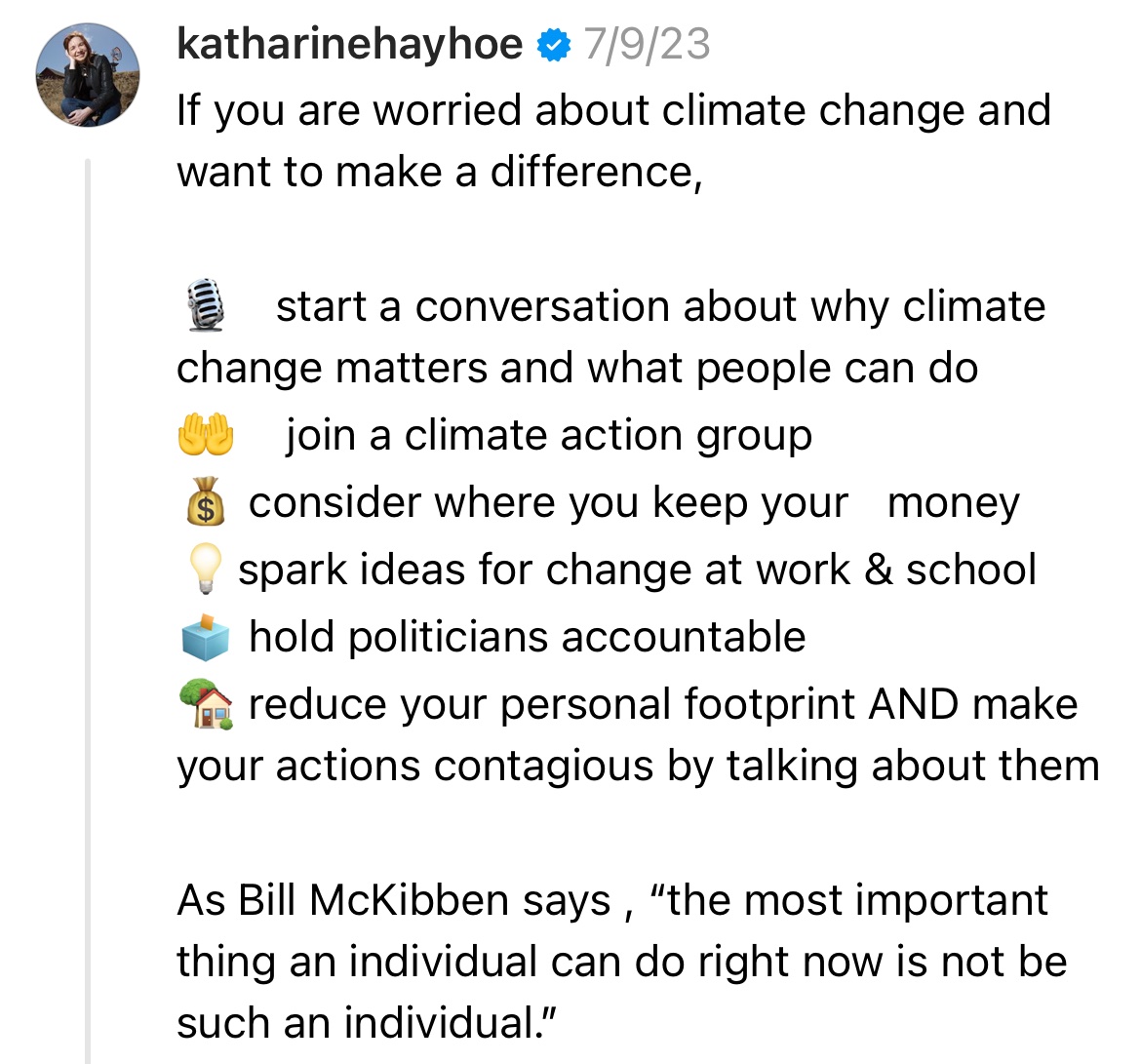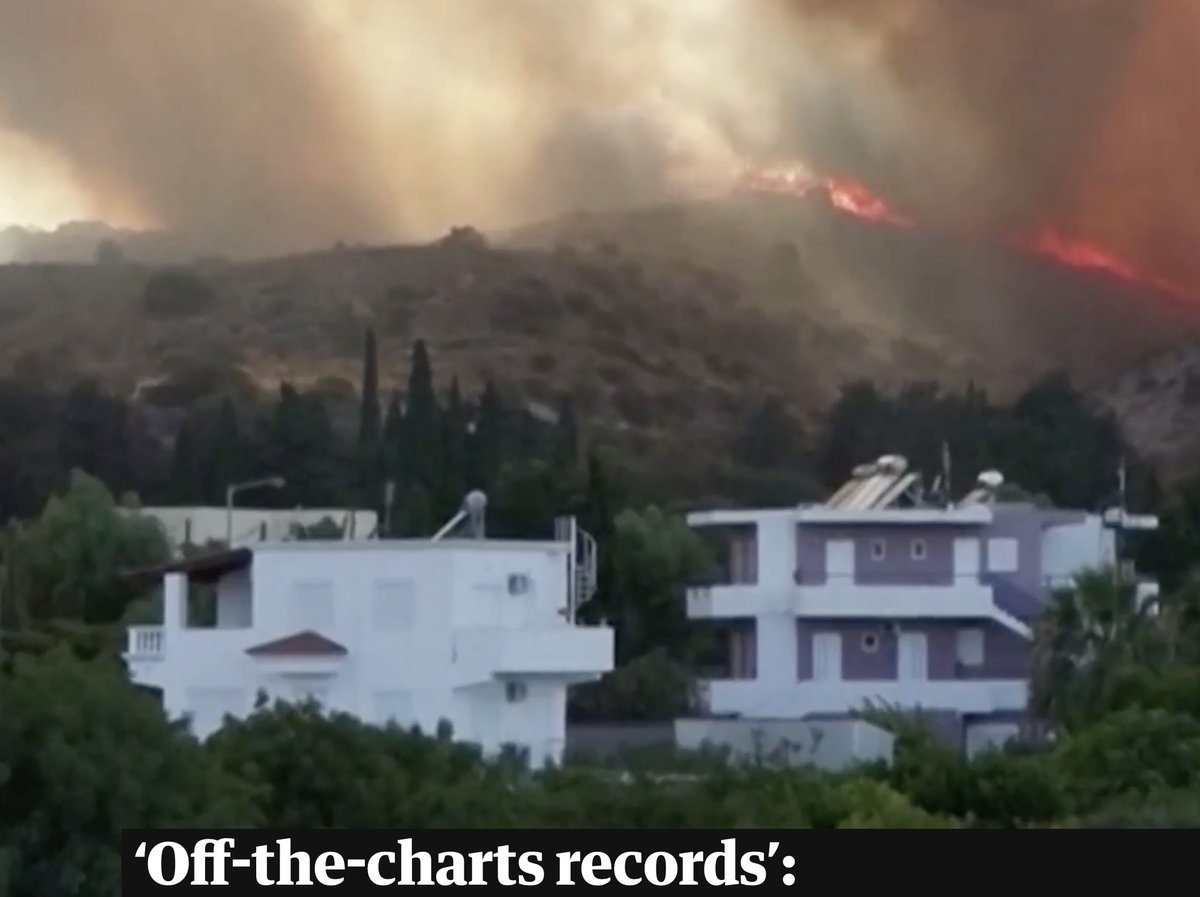I've spoken before about the generally unhelpful nature of purity tests and the role BP played in popularizing the concept of personal carbon footprint and by association, personal guilt ... but the results of this study made even me say WOW. journals.ametsoc.org/wcas/article/d… 

Do not get me wrong: though climate change requires system-wide solutions, systems are made up of people and our actions DO matter. But "if everyone did X we could fix it" and "if you don't do X you are evil" alienates more potential allies than it gains, even though ..
... our motives for doing so are entirely understandable. If we really understand climate change is scares us sh**less and our natural reaction to fear is to attempt to control it and our own behaviour and that of others is a lot easier to control than multinationals and govts.
The fear is what spurs us to action. But our action must be constructive. Bring climate impacts down to the local scale to de-polarize the issue and connect with others; emphasize surprising, inspiring, and inclusive solutions that bring others on board. ted.com/talks/katharin…
I talk about how i reduce food waste, plug in my car, have a carbon-smart travel policy; but I also share communities we can engage with, surprising actors from companies to cities making massive changes; smart farming techniques, new technology, bipartisan policies + more.
Fear drives us to demand "this silver bullet as the solution" but in reality there is so much "silver buckshot" and demonstrating the short-term positive effects of such choices and actions is what motivates us to move forward together to a better future. drawdown.org
Action is what must result if we are to have any hope. @reneelertzman ted.com/talks/renee_le…
Recommended further reading by my @allwecansave co-author @MaryHeglar -> vox.com/the-highlight/… and my colleague in science and communication, @MichaelEMann -> time.com/5669071/lifest…
h/t to @MaibachEd at the very end since he's the one who alerted me to this study. At the end, so he doesn't get inundated by all the replies! Of course, we'd agree, it's only one study. We need many. But it's worth considering + fits w other work pointing in the same direction.
And for anyone who wants a bit more of a lit review on the connection between fear, hope, and efficacy (feeling empowered and able to act), here's a few studies:
1/ journals.sagepub.com/doi/10.1177/10…
2/ tandfonline.com/doi/abs/10.108…
3/ frontiersin.org/articles/10.33…
1/ journals.sagepub.com/doi/10.1177/10…
2/ tandfonline.com/doi/abs/10.108…
3/ frontiersin.org/articles/10.33…
• • •
Missing some Tweet in this thread? You can try to
force a refresh








